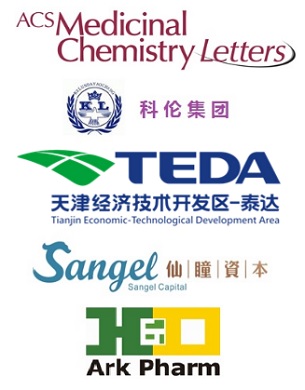国际新闻精选周四(2017年1月26日)
Eisai’s Lenvima hits liver cancer targets in PhIII trial
A late-stage trial assessing Eisai's cancer drug Lenvima for hepatocellular carcinoma (HCC) has achieved its primary endpoint, pushing the drug closer to being filed for approval in this setting.
The Phase III Study 304 compared the efficacy and safety of Lenvima (lenvatinib) versus Bayer's Nexavar (sorafenib), a standard treatment for advanced liver cancer, when used as a first-line of attack against unresectable HCC.【阅读全文】
US medtech approvals dip, but could pick up in 2017
Fewer approvals that are slower to arrive – not what the medical device industry had wanted to see from the US FDA. Just 38 first-time premarket approvals were granted to innovative devices last year, down 25% from the 51 awarded the year before (see graph below). And the agency has taken slightly longer, on average, to grant those approvals – 18.1 months compared with 17.3 months in 2015.
The coming year could be very different. The 21st Century Cures Act came into force at the end of last year, and contains provisions that would relax approval criteria for medical devices. And with the current US administration dropping hints that the requirements for device approval could be loosened further still, the years to come might see higher numbers and faster decisions.【阅读全文】
Novartis eyes Alcon exit
Novartis’s fourth-quarter results were nothing to write home about, so it is just as well that the company could say it was considering selling or spinning off its Alcon eye care business, a revelation that helped push its shares up 2% today.
The company believes that its efforts to turn Alcon around are beginning to bear fruit, which could help it find a buyer or float the division. However, with the ophthalmology segment being dominated by a handful of players, strategic acquirers might find it hard to overcome antitrust hurdles. And the Swiss group's chief executive, Joe Jimenez, seems keen on an IPO, suggesting that the scarcity of assets of this size in healthcare could help attract investors.【阅读全文】
Drug mix hailed in pancreatic cancer fight
A life-extending combination of two drugs has been hailed a "monumental leap forward" in the treatment of pancreatic cancer.
Pairing the chemotherapy drugs gemcitabine and capecitabine dramatically increases the chances of people with pancreatic cancer living at least five years, trial results have shown.【阅读全文】
BeiGene Initiates Global Phase III Trial of the BTK Inhibitor BGB-3111 in Waldenström’s Macroglobulinemia
BeiGene, Ltd. (NASDAQ:BGNE) a clinical-stage biopharmaceutical company developing innovative molecularly-targeted and immuno-oncology drugs for the treatment of cancer, today announced the initiation of a global, randomized Phase III trial of its investigational Bruton’s Tyrosine Kinase (BTK) inhibitor BGB-3111 in patients with Waldenström’s macroglobulinemia (WM). The study is designed to determine whether the quality of response with BGB-3111 in WM is superior to that of ibrutinib, the currently approved BTK inhibitor. Approximately 170 patients are expected to be enrolled at clinical sites in North America, Europe, Australia, and New Zealand.【阅读全文】
Fighting a generic onslaught, Novartis adds CAR-T to its growing list of late-stage blockbusters
One of the reasons why Novartis isn’t being forced to bid into the stratosphere for late-stage drugs is that its industry-topping R&D budget — $9 billion last year — has already funded one of the biggest late-stage pipelines in the industry. The pharma giant underscored that today as it outlined 13 prospective blockbusters with upcoming pivotal readouts in the coming months and years, a group that now includes its lead CAR-T therapy for the very first time. And it added more details on its immuno-oncology strategy, which has lagged behind leaders like Merck, Bristol-Myers Squibb and Roche.【阅读全文】
On Experiencing The Failure Of A Billion-Dollar Clinical Program
The FDA has published a white paper entitled “22 Case Studies Where Phase 2 and Phase 3 Trials had Divergent Results,” the purpose of which is “to illustrate the ways in which controlled trials of appropriate size and duration contribute to the scientific understanding of medical products.” One of the 22 examples given is that of torcetrapib, a Pfizer compound that blocked cholesterol ester transfer protein (CETP). Torcetrapib at the time was unique in that, by virtue of its mechanism, it both raised HDL-cholesterol and lowered LDL-cholesterol (LDL-c) in patients in Phase 2 trials. In the white paper, the FDA went out of its way to point out the promise of torcetrapib.【阅读全文】
美中药源原创文章,转载注明出处并添加超链接,商业用途需经书面授权。★更多深度解析访问《美中药源》~
★ 请关注《美中药源》微信公众号 ★



















 微信号:美中药源
微信号:美中药源